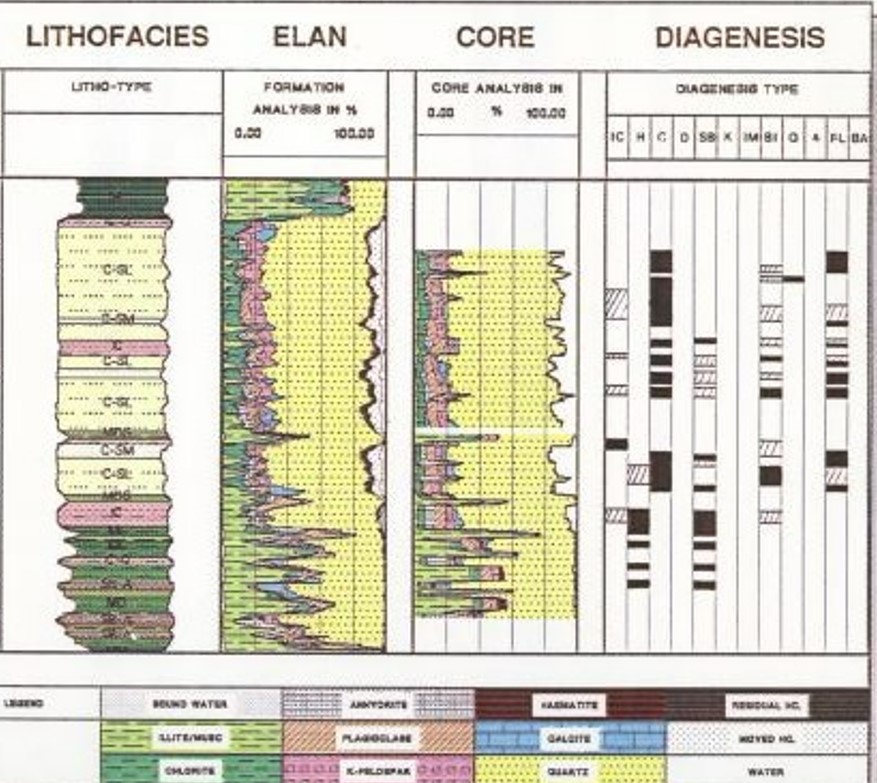Course Details
Home / Public Courses / Course Details
Petrophysics Insights: Interdisciplinary Reservoir Evaluation (PPH39)
Description
The course gives a broad overview of petrophysics, respectively formation evaluation and its impact on your business such as resources/reserves determination, reservoir management and well integrity. It covers the basic concepts (rocks and their porosity, permeability and rock texture), history of logging, tool theory, logging operations (incl. MWD-LWD), log evaluation methods and their uncertainties. The integration of core data (petrophysical measurements plus petrography), test results and cased hole data will also be discussed during the course. Last but not least, never forget the properly structured final report!
Course Level: Foundation
Duration: 3 days
Instructor: Martin Hock
Course Level: Foundation
Duration: 3 days
Instructor: Martin Hock

Designed for you, if you are...
- A geoscientist, reservoir engineer or any other professional interested in formation evaluation
How we build your confidence
- Mixed, instructor-led delivery of theoretical content with blend of PowerPoint overview and detailed explanations
- A narrative that runs through the course where each topic is inter-related and built on the previous learnings
- Extensive allowance for class-led questioning and discussions within the course delivery
The benefits from attending
By the end of the course you will feel confident in your understanding of:- The importance of formation evaluation for your business (resources/reserves, reservoir management & well integrity)
- What kind of measurements are available for the industry
- The importance of an integrated formation evaluation (logs, core, tests, cased hole, cross-well)
Topics
Introduction- Agenda
- Business purpose
History of logging
- The early years (1846 – 1945)
- The “middle” years (1946 – 1969)
- “Modern” logs (past 1969)
Basic Concepts
- Definition of well logs
- Rock composition (matrix, shale (clay), texture / structure)
- Porosity & fluids
- Classification of log measurements
- Borehole effects / invasion
- Tool geometry effects
- Logging speed
- Hostile environments
- Logging equipment (cables etc.)
Tool Theory
- Spontaneous potential
- Electrical survey
- Resistivities & microresistivities
- Induction, Electromagnetic propagation
- Gamma ray & gamma ray spectroscopy
- Sonic (Acoustic)
- Cement bond logs
- Density / Photoelectric effect
- Neutron porosity logs
- Pulsed neutron
- Carbon / Oxygen
- Activation (Elemental Capture Spectroscopy)
- Nuclear magnetic resonance
- Dipmeter / Formation images (resistivity, acoustic)
- Auxiliary (Caliper, Directional)
- Formation testing & sampling, perforating, production logging
- Well integrity (Corrosion like Multifinger, etc.)
- Cased hole logs
Operations
- Data Acquisition (Logging Program, Cost Estimates, Onsite Witness)
- Wireline (max. ca. 70° deviation, critical above 50°)
- TLC (tough logging conditions - tool on drill stem)
- Coiled Tubing (torque & drag increases with length of horizontal borehole)
- Well tractor
- Weatherford shuttle system (max. 125°C)
- Through bit logging
- MWD / LWD (real time or washdown, only resistivity for 4 1/8”)
- Service companies
Log Evaluation
- Software, Metadata, Data Load (formats)
- Data Edits (Depth matching, bulk shifts, splicing, despiking)
- Borehole corrections (e.g. butterfly charts, shoulderbed corrections)
- Deterministic log evaluation (Wyllie, Archie etc., shale corrections)
- Probabilistic log evaluation (ELAN, MultiMin0, Quality control (examples)
- Net/Gross (cutoffs)
- Lumpings
- Uncertainties
Core Data
- Coring & sampling
- Petrophysical standard data (porosity, permeability, matrix density)
- SCAL (special core data), i.e. compressibility, formation factor, saturation exponent, cation exchange capacity, Dean stark saturation, relative permeability, capillary pressure curves
- Petrographic core data (cuttings, calcimetry, core description, thin sections, XRD)
Well Testing (basics)
- RFT / XPT / MDT pressure data (wireline)
- Drill stem tests (DST)
- Production tests
- Fluid (Formation water) samples
Cased Hole Logs (Pulsed Neutrons, Resistivity)
Report Writing / Documentation, Archiving
© All rights reserved
HOT Engineering GmbH Tel: +43 3842 43 0 53-0 Fax +43 3842 43 0 53-1 hot@hoteng.com
